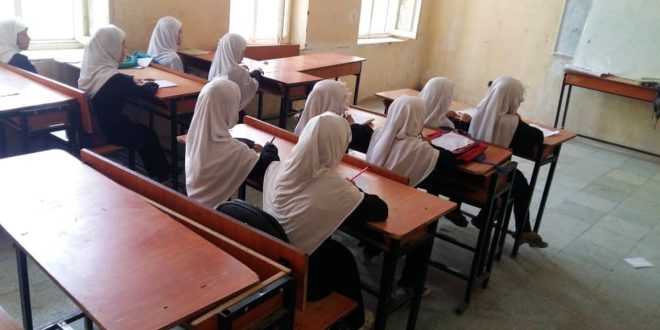KABUL – A stark report released by the World Food Programme (WFP) reveals that one in three Afghan girls are unable to complete their primary education, primarily due to widespread poverty. The findings underscore the devastating impact of economic hardship on education in Afghanistan, particularly for young girls.
The WFP noted that to combat rising dropout rates, it is providing school snacks to incentivize students to remain in class amidst escalating economic challenges. “Afghan girls face a ban on secondary school education, but many drop out earlier due to poverty,” the organization stated, emphasizing the dual burden of financial struggles and the Taliban’s restrictive policies on female education. Currently, girls are prohibited from attending school beyond grade six, compounding an already critical situation for many families.
This alarming report emerges as the United Nations warns of a severe funding shortfall for humanitarian operations in Afghanistan. International donors have expressed deep concerns regarding the Taliban’s oppressive treatment of women and girls, with some suggesting that aid could be suspended if these policies persist.
In a broader context, the WFP indicates that over 12 million Afghans are grappling with food insecurity, with nearly 4 million children, alongside pregnant and breastfeeding women, suffering from malnutrition. The organization has highlighted the urgent need for resources, stating that it requires $677 million to sustain its operations over the next six months.
 Afghanistan Times
Afghanistan Times




